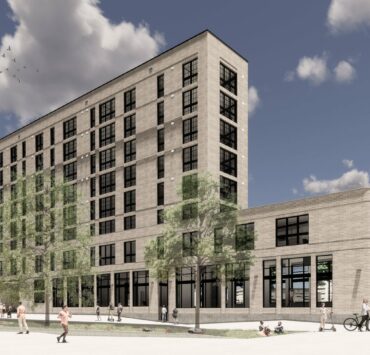Explore the proposed shift in Oregon’s land use policy where lawmakers are contemplating amendments to the state’s longstanding policy, particularly the iconic urban growth boundary established in the 1970s. This legislative cornerstone, aimed at curbing suburban sprawl and preserving nature and agriculture, is now under scrutiny as the housing crisis escalates.
The Legacy of Oregon’s Urban Growth Boundary
Oregon’s lush green landscapes owe much to the urban growth boundary, a legislative masterpiece that has significantly shaped the state’s development. According to Megan Horst, an urban planning professor at Portland State University, the boundary has played a pivotal role in maintaining the state’s distinctive environment.
Governor Tina Kotek’s Progressive Housing Package
Governor Tina Kotek, recognized for her progressive agenda, is championing a housing package aimed at stimulating home construction by revising the 1973 law. The proposed changes include a one-time exemption, allowing cities to acquire new land for housing development, with the stipulation that 30% of new units in expansion areas must be affordable.
The Proposed Amendments and Tight Deadlines
The 42-page package seeks to expedite the amendment process of urban growth boundaries, a task that currently requires cities to forecast population growth over 20 years before seeking changes. Introduced by Gov. Kotek, the bill faces a tight deadline, with lawmakers having just two weeks to approve it before the legislative session concludes on March 10.
Streamlining Expansion with Safeguards
The proposed amendments aim to streamline the process by easing regulations and waiving the 20-year population forecast under certain conditions. However, the bill includes restrictions to ensure responsible expansion. Cities seeking eligibility must prove a lack of land and affordable housing, outline growth boundary history, assess current developments, and demonstrate a percentage of households facing severe cost burdens.
 Debates and Divergent Views
Debates and Divergent Views
While the legislation offers a potential solution for cities facing barriers to land supply, critics argue that the process remains time-consuming, cost-prohibitive, and litigious. The proposed rules, including restrictions on the addition of high-value farm or forest land, have sparked debates within both political parties. State Senator Deb Patterson expresses support, citing added safeguards, while some Republicans, like Senator Dick Anderson, view the expansion rules as overly restrictive and advocate for alternative measures like land swapping.
Challenges Beyond the Boundary
As Oregon grapples with its housing crisis, the debate over the urban growth boundary mirrors broader challenges, including housing affordability, construction supply costs, labor shortages, and corporate ownership of housing. With the legislative session’s end looming, the fate of these proposed changes will be decided in the coming weeks.
Related posts:
 Surge in US Housing: A Close Look at the November 2023 Boom
Surge in US Housing: A Close Look at the November 2023 Boom
 Increased Housing Confidence Brightens 2024, But Buying a Home Still Tough
Increased Housing Confidence Brightens 2024, But Buying a Home Still Tough
 Canada Bans Foreign Homeownership Until 2027 to Help People Afford Homes
Canada Bans Foreign Homeownership Until 2027 to Help People Afford Homes
 Housing Market Crash in 2024: Unpacking the Truth Behind Rising Concerns
Housing Market Crash in 2024: Unpacking the Truth Behind Rising Concerns
 Denver Housing Market Challenges: Zillow Reveals Homebuyers Now Need $173K Annual Income
Denver Housing Market Challenges: Zillow Reveals Homebuyers Now Need $173K Annual Income




